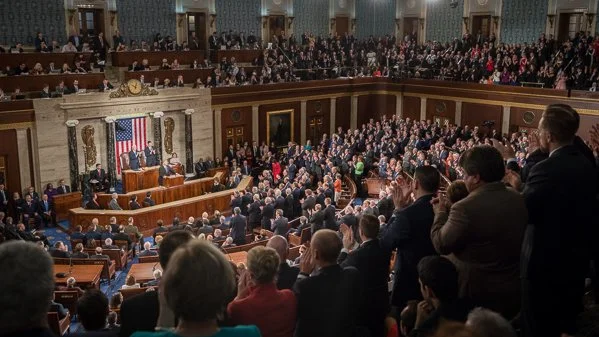Nine Questions with Andrew Nam, Legislative Correspondent to Thom Tillis
Each Senator and House member is the recipient of thousands of letters, emails, phone calls, and in-person visits from eager citizens, and being available to the people they represent is a monumental task. While members of Congress are busy debating legislation, the daily work of responding to constituent concerns falls to their assistants. Their staff members become the direct link between legislator and citizen, and their insight on Capitol Hill can be invaluable.
Andrew Nam is one such assistant. As a recent graduate of UNC-Chapel Hill, his experiences during undergraduate study and his current role in Senator Tillis’ office are an outstanding example for any Tar Heel interested in politics. Mr. Nam was a Political Science major at UNC, and served as a legislative intern in the North Carolina General Assembly while pursuing his degree. He was an intern in Senator Tillis’ office before working as a Staff Assistant in the U.S. House of Representatives. Currently, he works in Senator Tillis’ office again as a Legislative Correspondent. Mr. Nam is also in charge of coordinating the Senator’s interns. The CPR asked Mr. Nam nine questions about the ins and outs of his work, his experiences on Capitol Hill, and UNC’s unique impact on his career:
Carolina Political Review: What are your official responsibilities in Senator Tillis’ office?
Andrew Nam: I am a Legislative Correspondent in Senator Tillis’ Washington D.C. office and a majority of my responsibilities are centered on constituent services. I am responsible for responding to constituent’s comments and questions as they relate to healthcare, education, and a few other legislative issues. I also meet with constituents, organizations, and stakeholders from North Carolina on behalf of the Senator.
CPR: You are Senator Tillis’ internship coordinator, correct? What do you generally look for in a strong applicant?
AN: Yes, I am the internship coordinator for the Washington D.C. Office. Strong applicants will demonstrate that they are involved in their community and continuously active as a student. I believe the most common misperception is that students have to be heavily involved in politics to be a strong applicant. This isn’t necessarily true. This internship is designed for students to gain first-hand experience and evaluate if they are interested in pursuing a career in this field. Our internship program is unique to many on the Hill in that it provides opportunities for students to really become part of the legislative team and contribute policy research.
CPR: During your undergraduate career, you interned in Raleigh before working in D.C. How does working in the Senate differ from assisting state legislators?
AN: The greatest difference is the scope of the legislative branch at the state and federal level. However, politics is local and North Carolina issues are Senator Tillis’ highest priorities. So, a lot of the legislative work I’ve seen done in our office is similar to the work I saw at the General Assembly as an intern for State Senator Tommy Tucker.
CPR: Do you have any particular memories that stand out to you from your time in D.C.?
AN: One unique experience from my short time in D.C. was seeing first-hand all of the action before, during, and after the Presidential Inauguration last Fall.
CPR: What do you look forward to most at the beginning of a work day?
AN: One of the most enjoyable aspects of working on the Hill is that every day is unique. The fast-paced and ever-changing environment keeps the job interesting and exciting. I come into work looking forward to research new issues and interact with constituents. Senator Tillis is always very engaging with us in the office, creates a healthy and fun workplace environment, and assists every staffer with their personal development plans.
CPR: Is there any aspect of D.C. that you were surprised by after you graduated and moved to the city?
AN: I was pleasantly surprised to see that people are able to live in D.C. without feeling trapped in the city. I do miss the NC outdoors and the ability to make a quick trip to the mountains and the coast. I was not surprised to see parking at UNC is harder to find than in the District.
CPR: How did your time at UNC prepare you for state and national politics?
AN: I learned many skills at UNC that have prepared me to work in this field. Specifically, Professor Terry Sullivan and his Executive Politics and Political Tradecraft courses sharpened my ability to write intelligently, think critically about politics, and research thoroughly. He was also a great mentor with career advice and how to break into the legislative realm.
CPR: Is there anything at UNC that you wish you had more time to do?
AN: I would’ve loved contributing to something like the [Institute of Politics] as a student, I think it’s a very valuable and needed resource.
CPR: Favorite memory from your undergraduate years?
AN: All the glorious basketball victories over Duke are fond memories!

